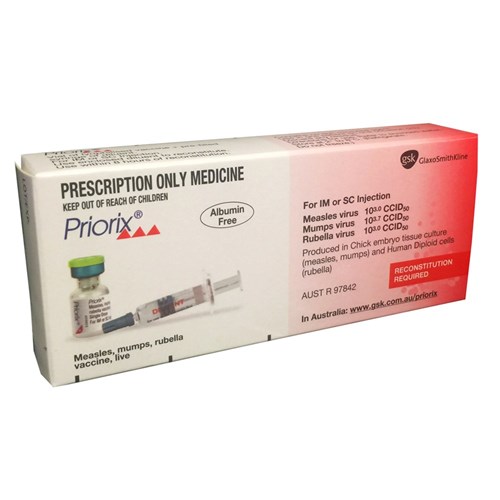FDA Approves First Measles Vaccine in Half a Century

GSK shared exciting news Monday morning, announcing that the company’s vaccine for protection against measles, mumps and rubella (MMR) has been approved by the U.S. Food and Drug Administration. The company filed a Biologics License Application in August of 2021, supported by data from six clinical studies.
GSK’s MMR vaccine first met with regulatory approval in 1997, when the biologic was approved for commercialization in Germany. Since then, it has been approved for use in all European countries, New Zealand, Canada and Australia. Clinical trials included over 17,000 participants from each vaccination age group, 12 to 15 months, four to six years old and over the age of seven, to evaluate the safety and efficacy while mirroring the ages of recommended inoculation. Additionally, the studies were designed to compare efficacy against already approved competition.
Judy Stewart, head of U.S. vaccines at GSK shared the company’s excitement.
"We're proud to make Priorix available in the U.S. for the first time, adding a choice for providers to help protect patients against these highly-contagious diseases,” she said.
Since the onset of the COVID-19 pandemic, child vaccination rates have plummeted, while measles cases have risen. MMR vaccination is critical for minimizing the spread of measles due to the speed at which infection can do so. Last month, the World Health Organization responded to reports that global case numbers in January and February of 2022 have nearly doubled from January and February of 2021. The WHO has since launched reinvigorated vaccine campaigns.
Barbara Howe, M.D., vice president and director, vaccines medical and clinical, U.S. at GSK commented on this rise at the time of the BLA filing.
"Outbreaks of measles in recent years demonstrate how quickly diseases can return in the absence of widespread immunization. This submission brings us one step closer to making PRIORIX available to the patients in the US and ensuring that health care professionals will have more than one option for this important disease prevention tool,” she said.
The scientific community has speculated whether low vaccination rates are attributed to global healthcare inadequacies that were exacerbated during the pandemic. Additional causes of the measles outbreaks may be low vaccine efficacy or even physician failure to express the criticality of a child’s vaccination schedule.
According to the U.S. Centers for Disease Control and Prevention, children should receive two inoculations of an MMR vaccine before adolescence. Prior to the approval of GSK’s MMR vaccine in the U.S., only one MMR vaccine has been available. This vaccine, licensed to Merck, can be administered to children one year or older and has been the standard of care since its approval in 1971. Recognizing an opportunity to revamp the MMR vaccine market, pharma companies have been working to develop an alternative.
Last week, BioSpace reported that the market for measles vaccines may reach $6.41 billion USD by 2026 as a result of the increased number of cases. The compound annual growth rate is estimated to be 7.1% annually.
Published: Jun 06, 2022



